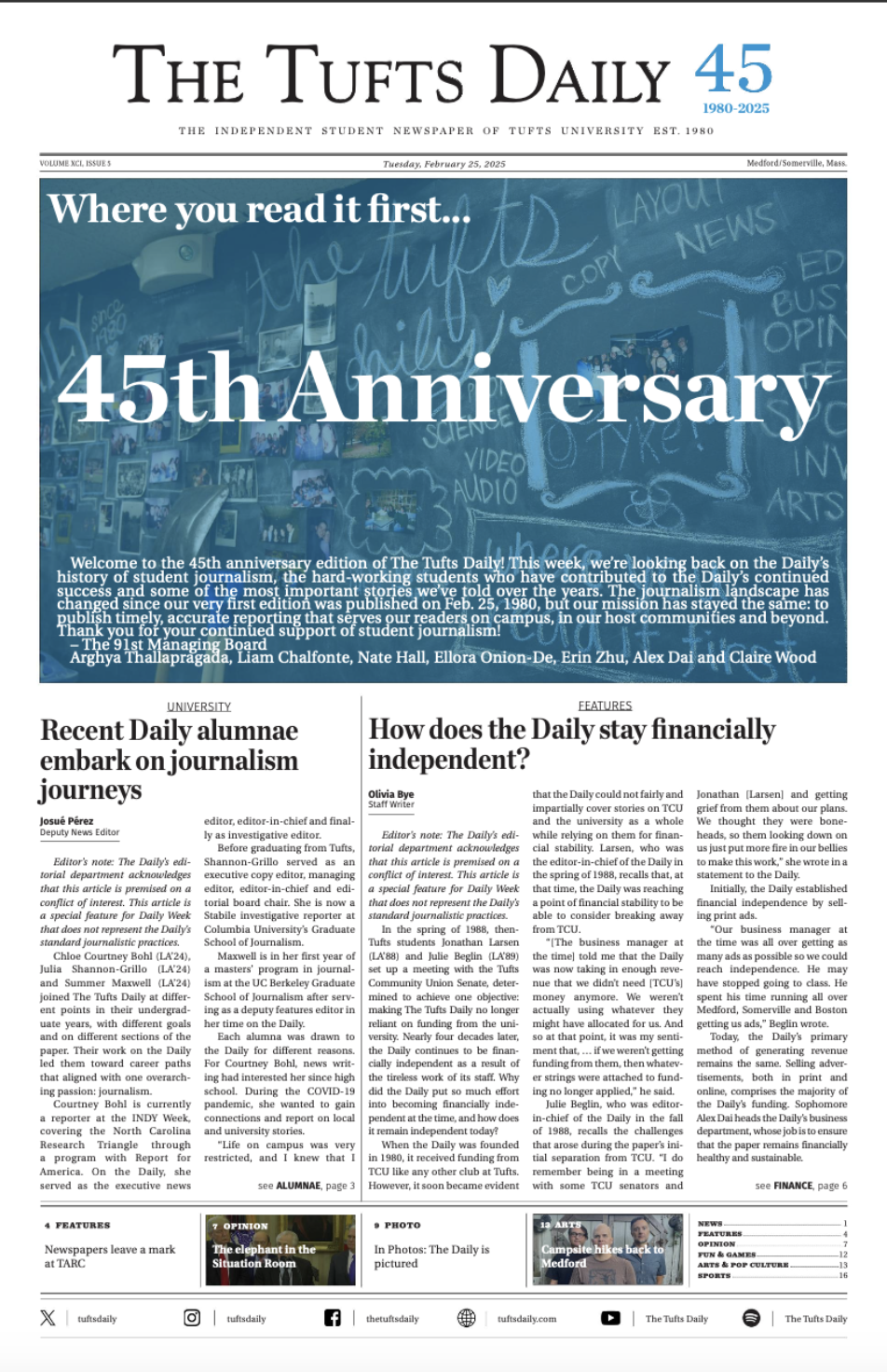You’ve (maybe, hopefully) voted before, and you may have come across specific questions on your ballot asking whether you want a certain policy to pass. There are tons of examples of big-deal ballot questions from places like Massachusetts and California, states where many Tufts students come from.
California’s Proposition 13 is perhaps the most famous ballot question in recent history, having passed in the 1970s and dramatically limiting the state’s ability to raise revenue from property taxes, leading to crippling cuts in public services, especially schools. Such is to say that ballot questions are, at times, extremely consequential and demand your close attention. And one of those questions — of the extremely consequential variety — will be on the ballot this fall.
On the Massachusetts ballot this fall is what is called the Fair Share Amendment. This is a proposed amendment to the Massachusetts Constitution that, if passed, could allow the state to levy a progressive income tax. Under our commonwealth’s constitution as is, no tax can be levied at a progressive rate, meaning no one can be taxed more or less at the state level based on their income. The passage of the Fair Share Amendment would authorize the commonwealth to levy a 4% annual tax on income over a million dollars, which has led to its labeling by some as a “millionaire’s tax.”
Why should I care about this as a transit nerd, you ask? Because the money raised through this tax will be constitutionally earmarked for crucial public services including education and — that’s right — transportation. So our transit authorities across the state, chief among them the MBTA, will be blessed with a wonderfully stable source of annual revenue should the amendment pass. And this would come at a critical time, as coverage over on Streetsblog notes that transit authorities are currently staring down the barrel of huge budget shortfalls as federal pandemic aid dries up. Luckily, the tax, if passed, would be implemented very quickly, and revenue would begin to trickle in as soon as early next year. Our transit authorities could always use more investment; think of how much could improve in terms of reliability, coverage and speed if the money was simply there. Furthermore, stable, consistent sources of revenue are key as we try to move toward fare-free service, and this tax is a wonderful start to that process.
So, hear me out: If you support this amendment, and you don’t expect to have many competitive races on your ballot this fall wherever you’re from, register to vote in Massachusetts. If you care about the public services that make communities flourish, then this question deserves your attention, and you should vote for it. You can even email me for help changing your registration if you want. At the end of the day, this amendment needs to pass, and you can help make that happen.





